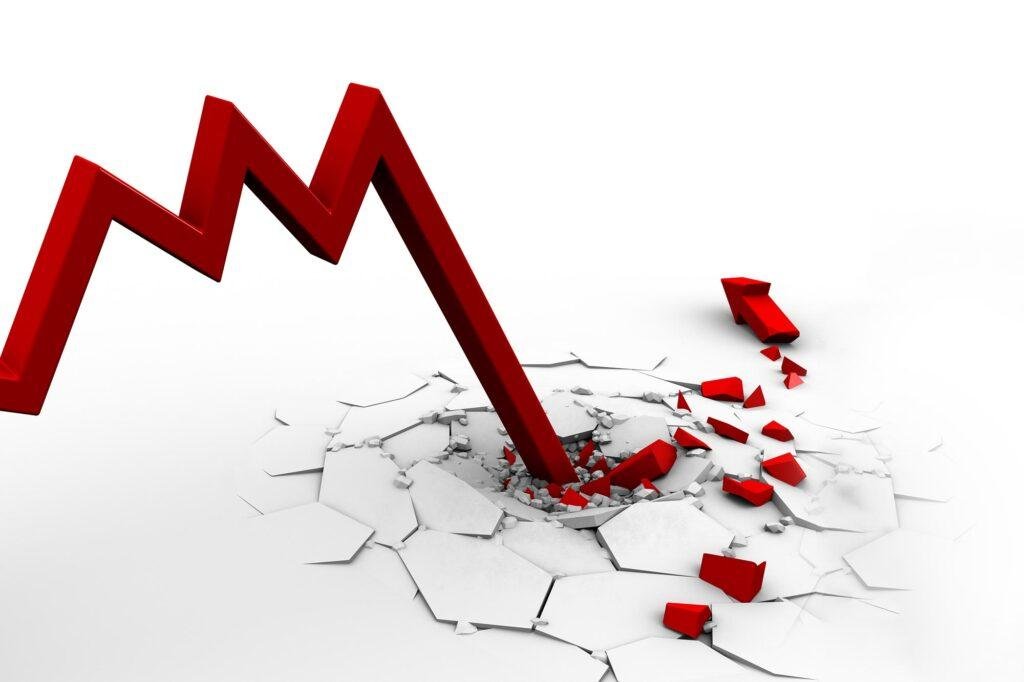The financial crisis of 2008 was a global economic crisis that was triggered by the collapse of the U.S. housing market and the subsequent failure of several major financial institutions. The crisis, which began in 2007 and lasted through 2009, had widespread effects on the global economy, leading to a severe recession and significant declines in stock markets around the world.
The crisis was caused by a combination of factors, including the over-leveraging of the financial system, the proliferation of complex and risky financial instruments, and the failure of regulatory agencies to adequately oversee the financial sector. The collapse of the U.S. housing market, which was fueled by subprime mortgages and lax lending standards, was the initial trigger for the crisis.
The crisis had far-reaching consequences, including high levels of unemployment, declines in housing prices, and the failure of many financial institutions. Governments around the world responded to the crisis with a variety of measures, including bailouts of failing banks, stimulus spending, and interest rate cuts. Despite these efforts, the global economy experienced a prolonged period of sluggish growth and high levels of uncertainty.
Causes of financial crisis
The financial crisis of 2008 was caused by a combination of factors that led to the failure of several major financial institutions and the subsequent downturn in the global economy. Some of the key causes of the crisis include:
- Over-leveraging of the financial system: Many financial institutions, including banks and investment firms, had high levels of debt relative to their assets. This over-leveraging made them vulnerable to changes in the market and increased the risk of failure.
- The proliferation of complex and risky financial instruments: The growth of the market for complex financial instruments, such as derivatives and mortgage-backed securities, created new risks and made it difficult for regulators to oversee the financial system.
- Lax lending standards: During the housing boom leading up to the crisis, many banks and other lenders issued subprime mortgages to borrowers with poor credit, often with little or no verification of their income or ability to repay the loan.
- Failure of regulatory agencies: Regulatory agencies, such as the U.S. Securities and Exchange Commission, failed to adequately oversee the financial sector and did not take action to prevent the proliferation of risky lending practices.
- Global imbalances: The crisis was exacerbated by the large trade and current account imbalances between the United States and other countries, particularly emerging markets in Asia and Europe.
Overall, the financial crisis of 2008 was caused by a complex interplay of factors that created vulnerabilities in the global financial system and led to the failure of several major institutions.
Effects of the financial crisis
The financial crisis of 2008 had far-reaching effects on the global economy, leading to a severe recession and significant declines in stock markets around the world. Some of the key effects of the crisis include:
- High levels of unemployment: The crisis led to widespread job losses, particularly in the financial sector. Unemployment rates in the United States, for example, reached 10% at the height of the crisis, and many workers were unable to find new jobs for long periods of time.
- Declines in housing prices: The collapse of the housing market was one of the key triggers of the crisis. As the market declined, many homeowners found themselves with homes that were worth less than what they owed on their mortgages, leading to widespread foreclosures.
- Bank failures: The crisis led to the failure of many financial institutions, including several large banks and investment firms. In some cases, these failures were the result of the institutions’ own risky practices, while in others they were the result of the broader economic downturn.
- Economic downturn: The crisis had a significant impact on the global economy, leading to a severe recession that lasted from 2007 to 2009. Many countries experienced declines in GDP, trade, and industrial production, and the crisis had a particularly severe impact on emerging markets.
- Loss of confidence in the financial system: The crisis led to a loss of confidence in the financial system and the institutions that operate within it. Many people became wary of investing in stocks or other financial assets, and the crisis led to a general sense of uncertainty and unease about the future of the economy.
Overall, the effects of the financial crisis of 2008 were widespread and long-lasting, leading to high levels of unemployment, declines in housing prices, and a general downturn in the global economy.
Conclusion
In conclusion, the financial crisis of 2008 was a global economic crisis that was triggered by the collapse of the U.S. housing market and the failure of several major financial institutions. The crisis, which lasted from 2007 to 2009, had far-reaching effects on the global economy, leading to high levels of unemployment, declines in housing prices, and the failure of many financial institutions.
The crisis was caused by a complex interplay of factors, including over-leveraging of the financial system, the proliferation of complex and risky financial instruments, lax lending standards, and the failure of regulatory agencies to adequately oversee the financial sector. Governments around the world responded to the crisis with a variety of measures, including bailouts of failing banks and stimulus spending, but the global economy experienced a prolonged period of sluggish growth and uncertainty.
Overall, the financial crisis of 2008 was a stark reminder of the potential risks and consequences of a failure to properly manage the financial system. It highlighted the need for effective regulation and oversight to prevent similar crises from occurring in the future.

